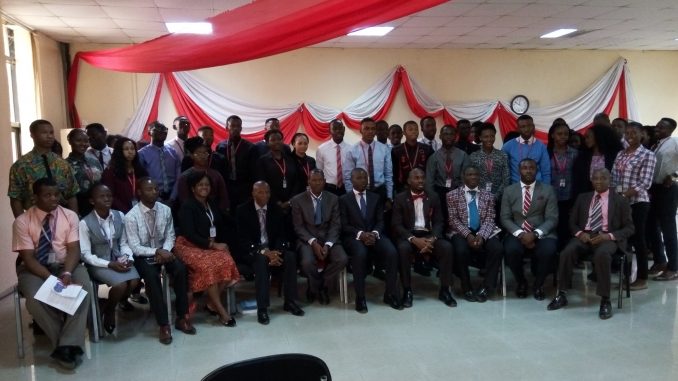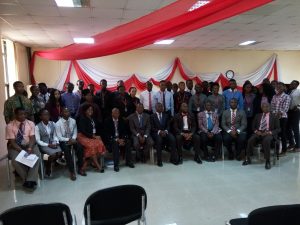
The absence of real-time, tested and verifiable property data bank system has been identified as one of the major challenges of real estate practice in Nigeria. This, according to an expert, is quite different in the developed economies where data is available, collected and usable by practitioners and investors for valuation and other real estate purposes.
An Estate Surveyor and Valuer, ESV. Dotun Bamigbola, made this known on Friday, February 17, 2017, while speaking on, “International Standards and the Future of the Real Estate Practice: The Need for Property Data Bank,” at a Town and Gown seminar  organised by the Department of Estate Management, Covenant University, Ota.
organised by the Department of Estate Management, Covenant University, Ota.
Bamigbola, who is the Principal Partner at Bamigbola Consulting (a firm of Estate Surveyors and Valuers) and Guest Speaker at the event, however noted that the absence does not mean that the data are unavailable as they exist from every transaction and on every project, the challenge, he said, was having a collection of these data and analysed for useful market-based information.
“The Nigerian economy is very ripe for the development of a property data bank system that will bring about a revolution to real estate development in the country and Estate Surveyors and Valuers are in the best position to take the lead in the project,” he stated.
ESV. Bamigbola hinted that despite the challenges, efforts are on-going to develop a robust database for real estate practice in the country. He charged the budding Estate Managers to acquire necessary training, have the global focus and embraces technology in order to overcome the challenges. He added that the new generation of Estate Surveyors and Valuers has a number of challenges ahead, which, however, are not insurmountable.
The guest speaker also noted that with a current contribution of about 6% to the GDP based on the last rebasing of the economy, the real estate sector in Nigeria can be more investor friendly by providing this transparent tool for investment and opening up the sector for the huge investment it requires, especially with the need for the country to generate income from sources other than oil and gas. “This will further support the implementation of standards in real estate practice in Nigeria,” he added.

Leave a Reply